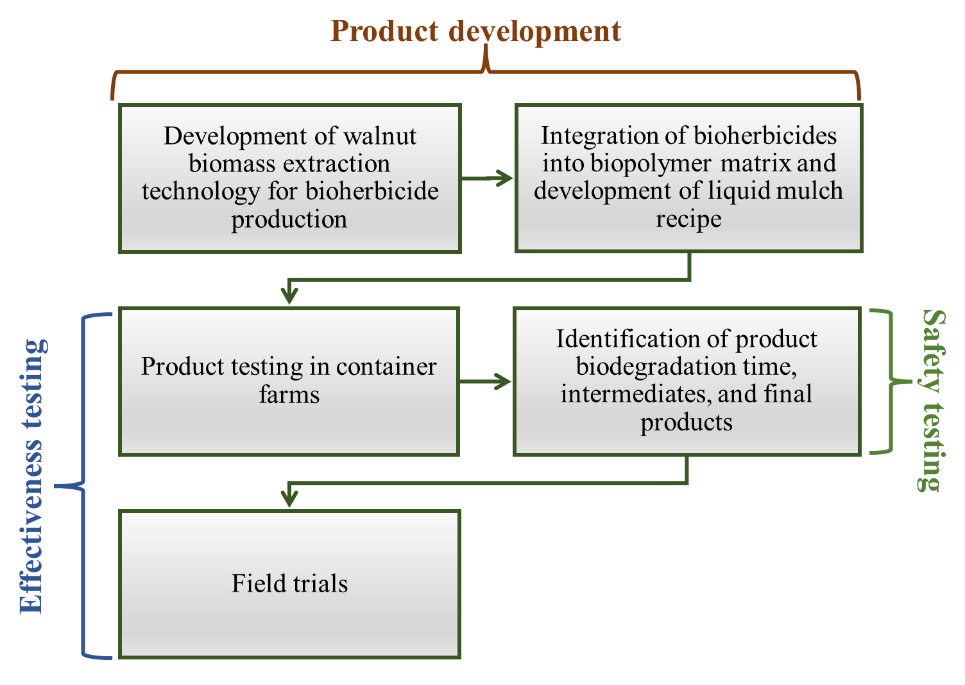Developing a biodegradable sprayable mulch incorporating walnut husk extracts enriched in allelochemicals for sustainable weed control in agriculture
Project summary
The aim of the project is to develop a new sustainable, safe, and effective solution for weed control in integrated agriculture by incorporating extracts from walnut processing waste, which possess herbicidal activity, into a matrix of film-forming polymers and testing it in vegetable cultivation.
Walnut trees are known for their ability to inhibit the growth of neighboring plants due to the chemical composition of walnut biomass. In this project, bioherbicides such as juglone will be extracted from walnut cultivation and processing waste. These bioherbicides will then be immobilized in a biopolymer matrix to prevent their dispersion in the soil and ensure selective action against weeds without harming crops. The resulting starch-based compositions will form a protective film on the soil's surface after spraying and drying. The combination of mechanical and chemical action will enhance weed control efficiency. After use, this mulching film can be integrated into the soil, and its components, including bioherbicides, will break down over time into harmless compounds that do not accumulate in the environment.
Project activities:

Results and perspectives of the project:
The sprayable mulch film with integrated bioherbicides serves as an alternative to traditional soil mulching using polyethylene films and to herbicides. It offers several benefits:
- reduces the spread of weeds, thereby increasing productivity;
- maintains soil fertility;
- protects soil and crops from microplastics and synthetic herbicides;
- eliminates the need to collect and dispose the mulch films after use.
The results of this project will contribute to a key priority in the horticulture sector: “The development of plant protection and fertilization strategies for open-field vegetables and safe food production”.
The developed walnut biomass extraction technology will enable walnut growers, such as WESTLAKE Ltd., to sell walnut cultivation and processing waste as raw material for bioherbicide production. This will increase the value of walnut biomass and strengthen the circular economy within the horticultural sector.
Total funding of the project: The total eligible costs of the project amount to EUR 298,686.92, with a public support intensity of 90%, which totals EUR 268,818.22
Project implementation period: 36 months
Call, Activity: Eiropas Lauksaimniecības fonda lauku attīstībai un Kopējās lauksaimniecības politikas stratēģiskā plāna 2023. - 2027.gadam Intervences (pasākuma) LA 16 - "Atbalsts Eiropas Inovāciju partnerības darba grupu projektu īstenošanai" aktivitātes "EIP darba grupas projekts nozares līmenī"
Project partners
- Latvian State Institute of Wood Chemistry (leading partner)
- Westlake Ltd.
- The Institute of Agricultural Resources and Economics

